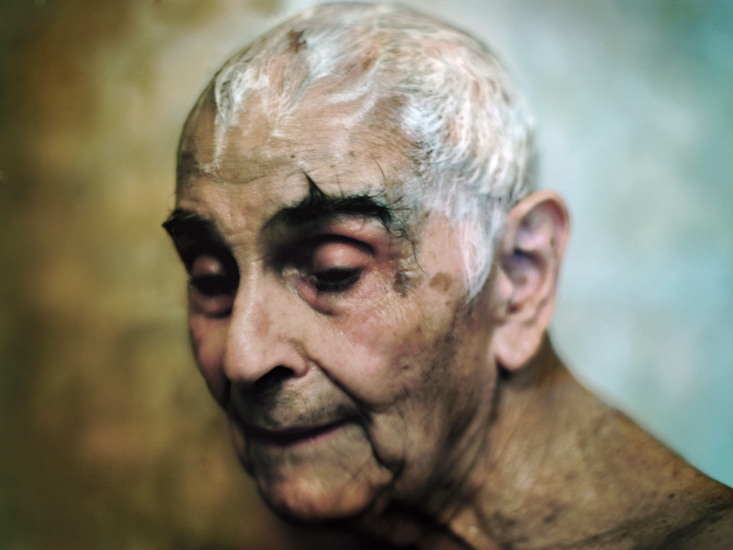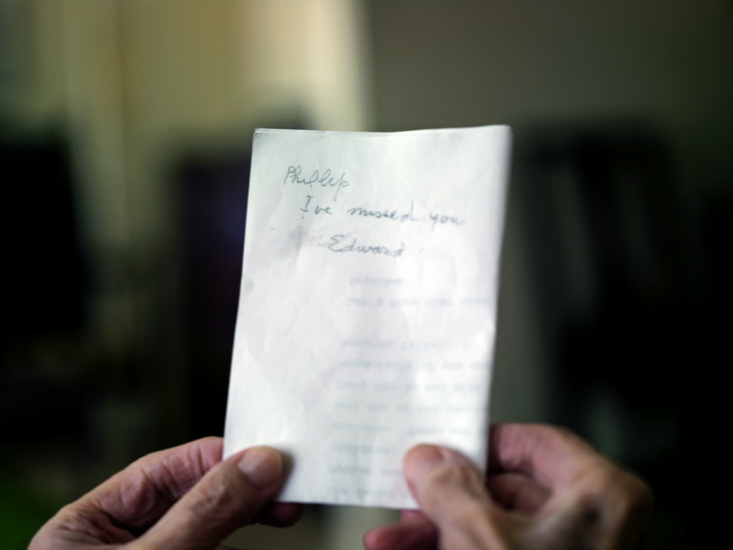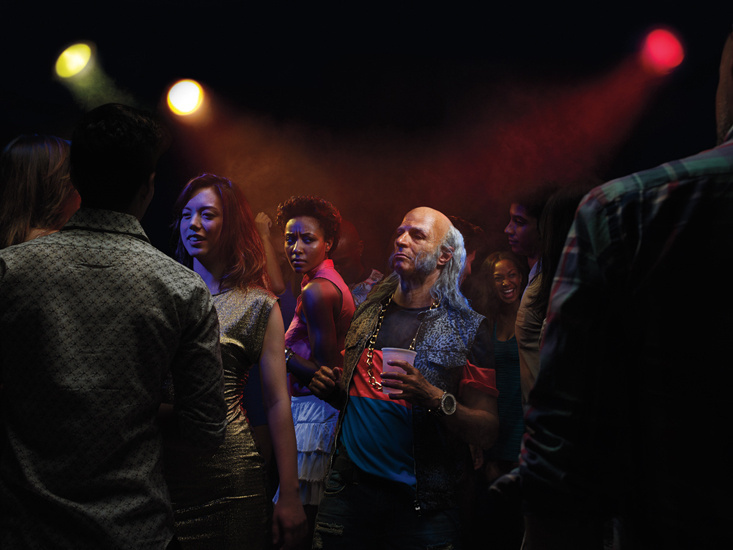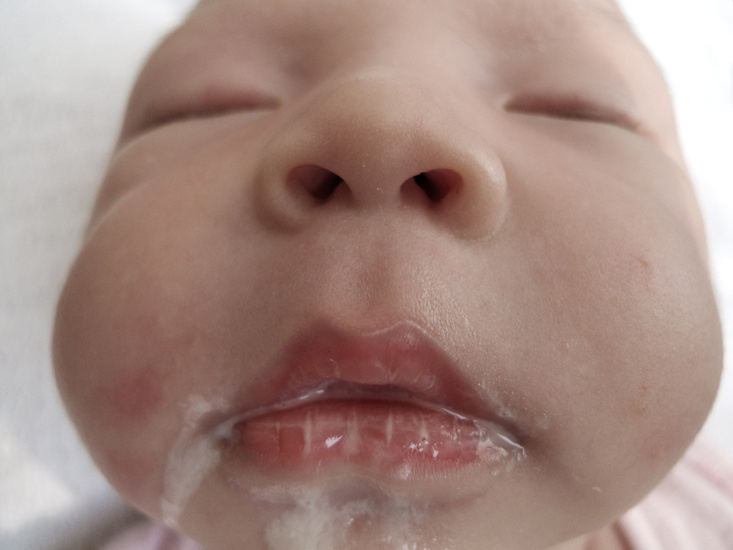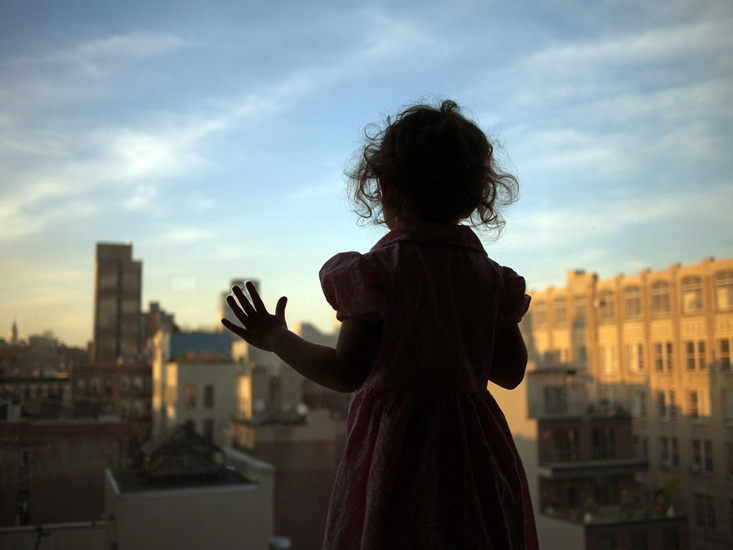Phil Toledano talks to us about his projects dealing with personal themes and family relationships
PW: People familiar with your practice will likely know Days with my Father, the documentation of the decline of your father into dementia. In that series, you offered your father an alternate narrative by telling him your mother was in Paris attending to a sick brother. This must have been a very difficult time for you. How did you go about detaching yourself from the process?
PT: I don’t think you detach yourself at all – if you do, then how can you make anything with any emotion in it? How can you make something that’s true? It was extremely difficult, but the act of having a conversation with myself, and my father, through the camera and the words I wrote made things easier to bear.



PW: Your next series, When I was Six, follows the trace of your sister through an archive of material kept by your mother to memorialise her. Did you feel a need to document the history of your family photographically?
PT: Not really -I think I felt the need to open boxes (both metaphorical and literal) that had been closed for 40 years. I think when your parents die you have the chance to look at things in your life that you might not want to look at, and understand them a little better. That was what I hoped for in doing When I was Six, the opportunity to understand my sister, my parents, and hopefully myself.
PW: The project Maybe details the various ways your life could turn for the worse. We witness illness, ageing, failure and death. The work appears to document a harbouring fear of outcomes and what can’t be predicted. Has working on such emotionally charged projects centred around your own family history, lead you to wonder about your own mortality?
PT: Maybe grew out of my mother’s sudden death and the subsequent path my life took, in caring for my father. Both were things I hadn’t expected, or at least not in the way they occurred. I became very apprehensive about what other dark turns life might have in store for me, so Maybe was a way of confronting those fears. I know it’s not the normal way one confronts fear, but I suppose I’m not so normal. My wife said it would have been easier to see a shrink. I think she had a good point! Doing the Maybe project turned into a form of exorcism – by the end of the three years it took me, I no longer felt afraid of my own mortality.



PW: In The Reluctant Father you deal with your feelings towards becoming a parent. What were you hoping to say with the project? Did you find you were more concerned with your legacy after spending so much time concentrating on your own past?
PT: The thing about being a parent is that you’re expected to be wildly enthused from the word go and if you’re not, you’re considered a serial killer of sorts (that may be slight exaggeration, but you get the idea). As with all my personal work, I suppose I was just trying to make sense of what was happening to me.


PW: With your works being highly personal, do you recognise the narratives as being about yourself, or are you using them to discuss wider issues?
PT: They’re totally about me. The sad thing about the human condition (or the great thing) is that for the most part, my experiences are universally generic, so bits of them may speak to others. To be frank, it’s not my intention, but I’m deeply grateful and honored when something I’ve done matters to someone else. Isn’t that the point of art?
PW: Finally, what’s next for you?
PT: Well, hopefully something a bit less about me, although it’s SUCH a fascinating topic… I’m doing two video projects about the art world…that’s all I can say..
For more of Phil’s work, click here.
For more Ideas Series articles, click here.

